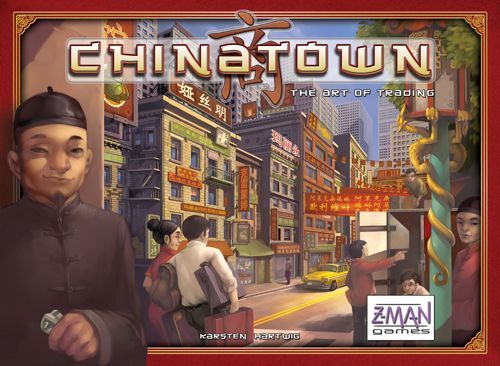Chinatown (1999) Board Game
Chinatown is a board game released in 1999 by designer Karsten Hartwig and published by alea. It is a city-building and economic game that focuses on negotiation and set collection mechanics. The game is designed for 3-5 players aged 12 and up, with a runtime of around 60 minutes. The game has received critical acclaim for its strategic depth and replayability.
Game Components of Chinatown
How To Setup Chinatown
To set up Chinatown, players start by shuffling a deck of building cards and dealing out a number of cards to each player based on the round and player count. Each player also receives a random number of shop tiles. The board is set with numbered building lots, and a round marker is placed to track the six rounds of the game, representing the years 1965 to 1970. Players begin with an initial capital of $50,000 and take turns selecting building lots and placing ownership markers on the board.
Gameplay Mechanics and Game Objective
Player Experience
Chinatown is a game that thrives on negotiation and strategic trading. Players are constantly involved in deal-making, trying to expand their businesses and earn the most money. The game encourages creative and often complex trades, with multiple deals happening simultaneously. This dynamic creates a highly interactive and social experience, where players must navigate the ever-changing board state and other players’ intentions.
Pros
Cons
Personal Thoughts on Chinatown
Chinatown is ideal for players who enjoy negotiation and trading games. It is not for those who prefer complex game mechanics or are sensitive to potentially offensive themes. The game’s simplicity in rules but complexity in interactions makes it a gem for those who love the art of deal-making and strategic trading. However, it may not appeal to everyone due to its intense competitive nature and the lack of mechanisms to correct mistakes.
We are supported by our audience. When you purchase through links on our site, we may earn an affiliate commission, at no extra cost for you. Learn more.

